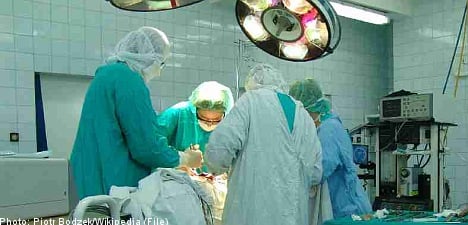For the first time ever, a study looking at how many Swedes would be willing to part with one of their kidneys for money has been carried out by consumer research company SIFO for Sveriges Radio (SR).
“If it was legal, would you be prepared to sell one of your kidneys for 300,000 kronor ($48,344) to the County Council (Länstinget) to be used for someone with kidney failure, or wouldn’t you,” SR asked 1,000 Swedes.
22 percent answered they would be prepared to sell their kidney, 67 percent were not and 11 percent were undecided.
Compared to Sweden’s population this would mean that 1.5 million people would be prepared to donate their kidney for cash.
There are currently 750 people on the waiting list for kidney donation in Sweden, according to SR.
The system would be profitable for state finances within a year as an operation costs approximately 300,000 kronor, whereas a year on dialysis costs twice as much, according to figures that SR have got from the Swedish Renal Registry (Svenskt Njurregister).
According to SR, the only country in the world where the state pays for kidney donation is Iran, and it is also the only country without a waiting list.
Most other countries, including Sweden, have signed a UN declaration prohibiting organ trade.
The survey showed that low-income earners and high-income earners were just as likely to agree to the operation despite the small risk it would incur.
Out of those with an annual income of 250,000 kronor a year, 19 percent were in favour, 73 percent against and 8 percent undecided.
The same figures applied for those with an annual income of 600,000 or more, and those in between also showed very similar figures.
However, young people were more likely to be positive to selling their kidney (29 percent) than elderly people (17 percent) and those with a secondary education (16 percent) were less positive than those with a lower educational level (31 percent).
More men (73 percent) than women (64 percent) were completely against the procedure.
The survey was carried out by SIFO for Sveriges Radio in April and 1,000 people took part.


 Please whitelist us to continue reading.
Please whitelist us to continue reading.
Member comments